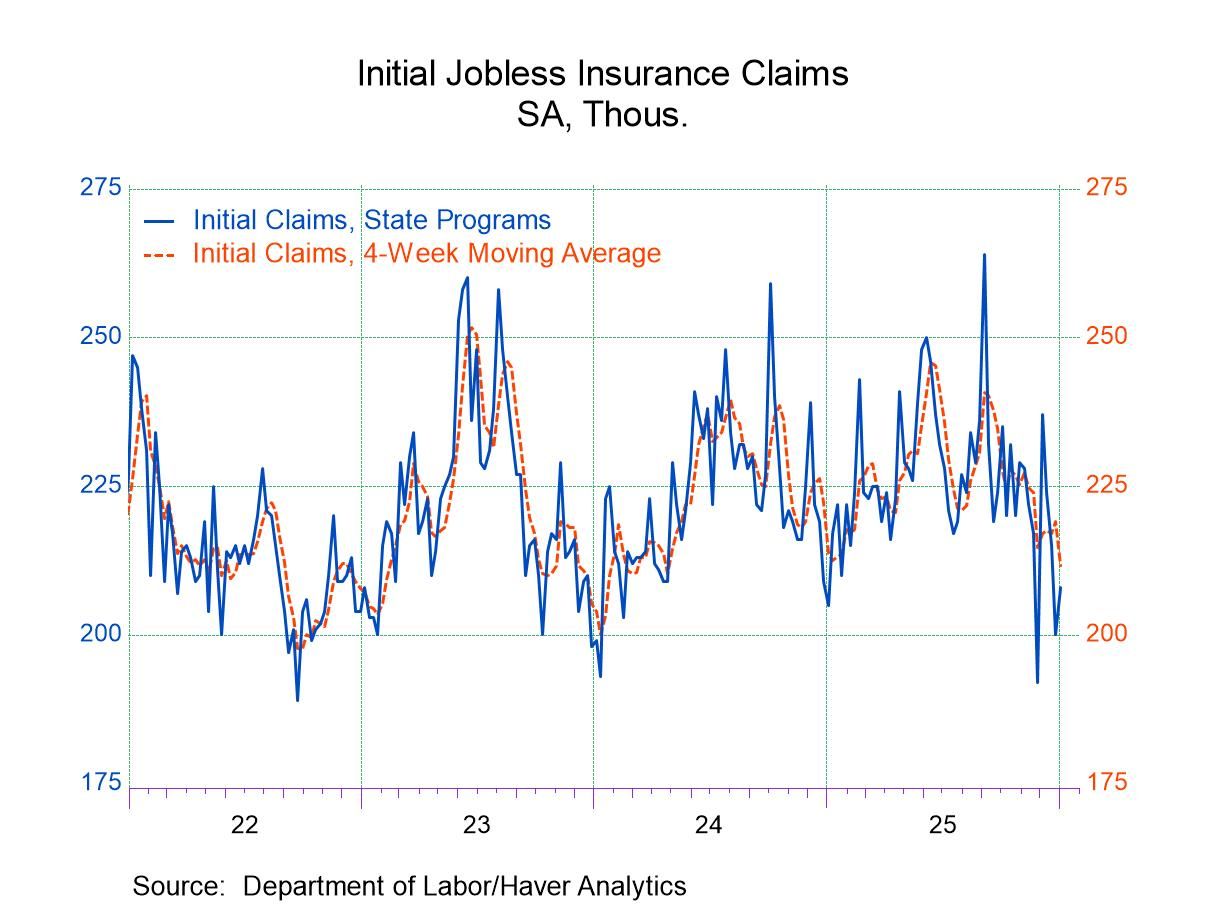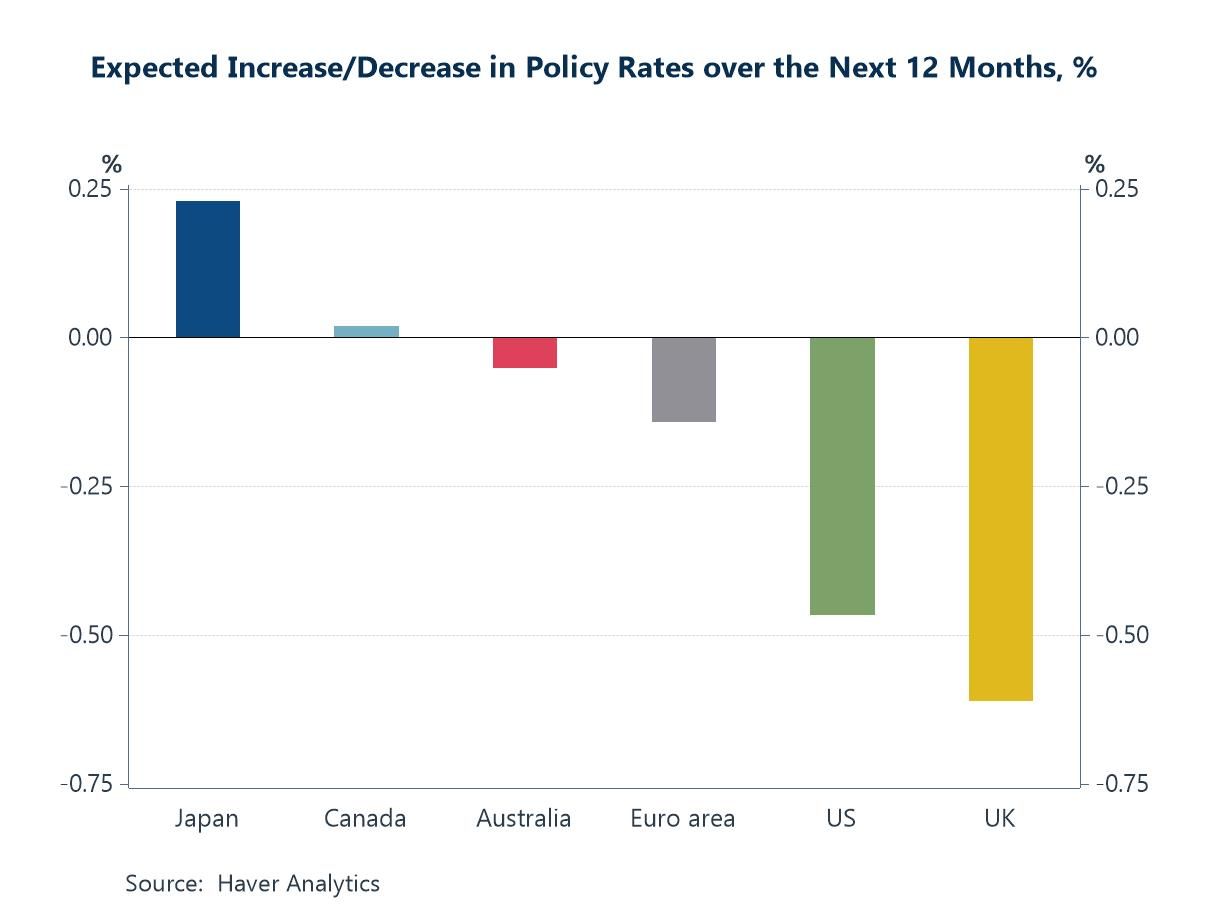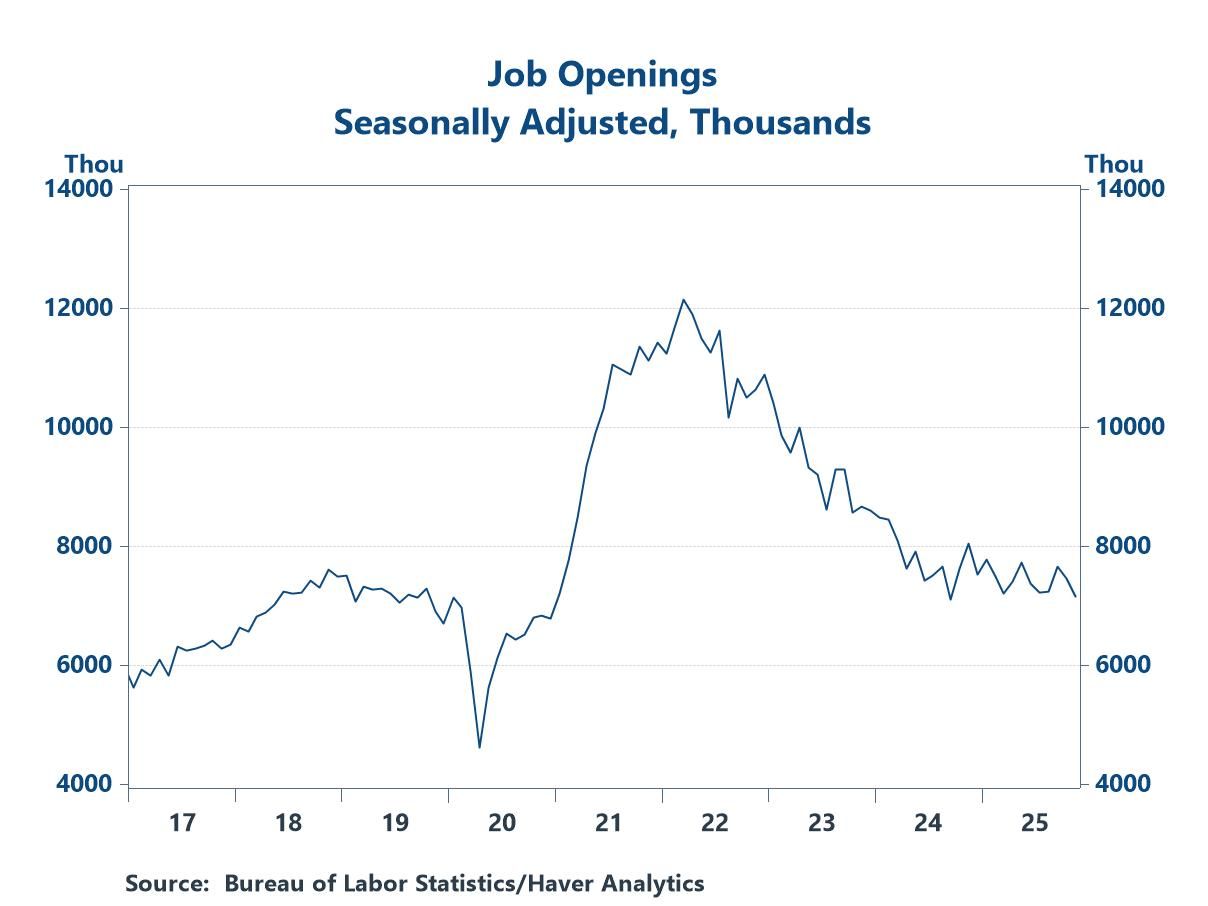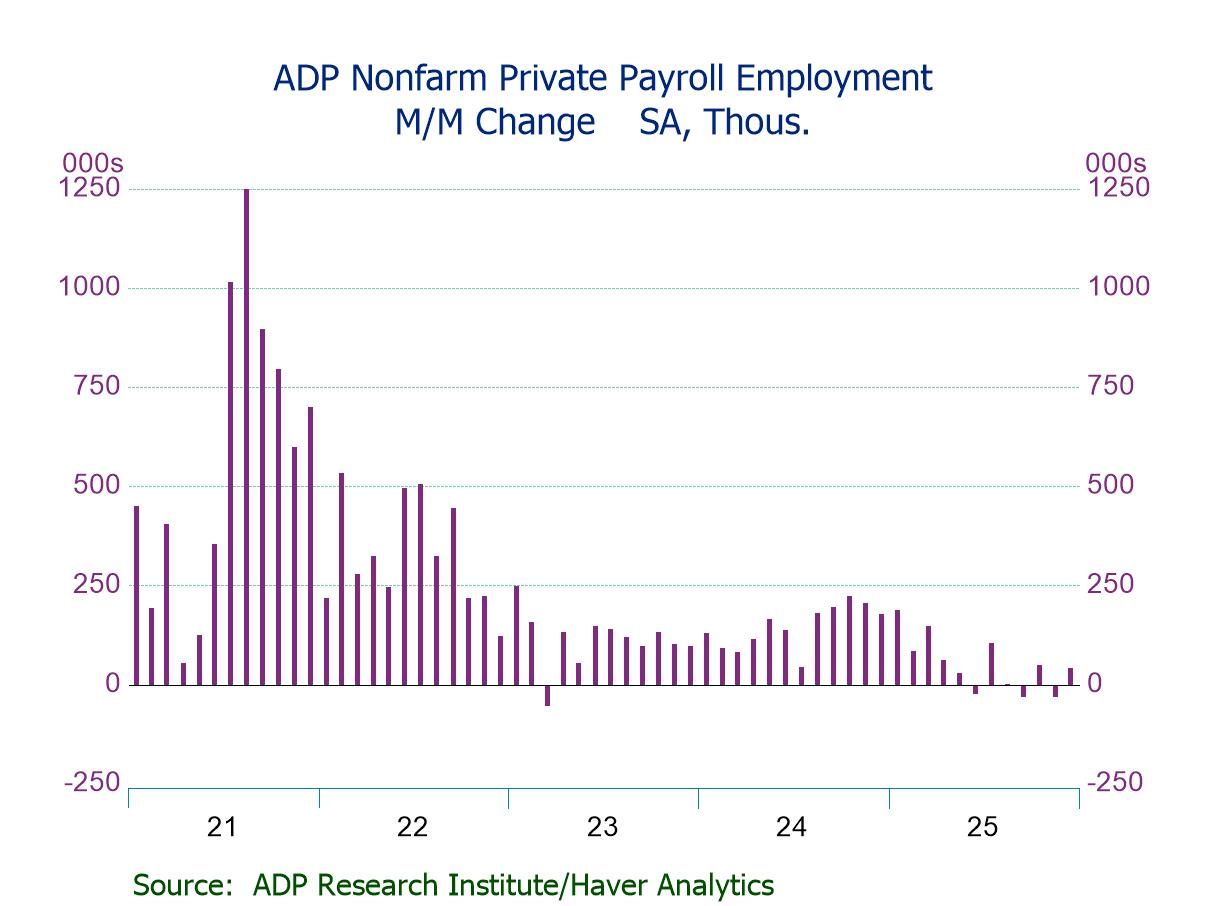Texas Manufacturing Activity Indexes Remain Negative in March
by:Tom Moeller
|in:Economy in Brief
Summary
- General business activity slips; expectations deteriorate.
- Shipments & hours-worked drop, but employment & production improve.
- Pricing & wage pressures diminish.


Manufacturing activity in Texas continued to weaken this month, according to the Manufacturing Outlook Survey conducted by the Federal Reserve Bank of Dallas. The general business activity index of –15.7 compared to -13.5 in February; it’s been negative since last May. The latest reading compared to a low of -23.7 in July of last year. A slightly improved 12.6% of respondents reported improved business activity in March, down from 17.2% in January. An increased 28.3% of respondents reported a worsening of business conditions, the most in three months. The company outlook index improved slightly to -13.3 in March from -17.5 in February, but it has been negative since March, 2022. Data were collected from March 14-22 from 92 Texas manufacturers.
The shipments index fell to -10.5 from -5.0 and stood at its lowest level since May 2020, down from 26.1 in November 2021. A greatly lessened 19.1% of respondents reported more shipments while a fairly steady 29.6% reported a decline. The hours-worked measure declined to 2.6 from 4.9. It was the weakest measure in four months.
To the upside, the employment index rose to 10.4 from -1.0 as a greatly increased 24.1% of respondents reported a rise in hiring, while a lessened 13.7% reported a decline. The production index improved to 2.5 in March from -2.8 in February. A slightly lessened 23.3% of respondents reported higher production while a greatly fewer 20.8% reported a decline. The growth rate of orders index rose this month to -15.2 from -16.9 in February, but has been negative since May of last year. The unfilled orders reading rose to -9.4 from -13.3.
Inflation indicators fell this month. The index for prices received for finished goods declined to 7.0 from 15.8. It was the lowest reading since November 2020. It was down from a high of 51.3 high in October 2021. A lessened 17.7% of respondents reported raising prices while an increased 10.7% reported lowering prices. The index of prices paid for raw materials weakened to 20.3 this month, the lowest level since July 2020, significantly below 73.4 last March and an 84.1 high in November 2021.
Expectations for future manufacturing activity deteriorated this month. The future general business activity index stood at -11.2 in March, its 11th consecutive negative reading. The future production index fell to 13 .5 from 21.3 as the future employment index also dropped sharply to its lowest level in five months. The future shipments index weakened as did the hours-worked measure. Showing improvement, the future capital spending measure rose to its highest level since July of last year.
Each index is calculated by subtracting the percentage reporting a decrease from the percentage reporting an increase. When all firms report rising activity, an index will register 100. An index will register -100 when all firms report a decrease. An index will be zero when the number of firms reporting an increase equals the number reporting a decrease. Data for the Texas Manufacturing Outlook, conducted by the Federal Reserve Bank of Dallas, can be found in Haver's SURVEYS database.


Tom Moeller
AuthorMore in Author Profile »Prior to joining Haver Analytics in 2000, Mr. Moeller worked as the Economist at Chancellor Capital Management from 1985 to 1999. There, he developed comprehensive economic forecasts and interpreted economic data for equity and fixed income portfolio managers. Also at Chancellor, Mr. Moeller worked as an equity analyst and was responsible for researching and rating companies in the economically sensitive automobile and housing industries for investment in Chancellor’s equity portfolio. Prior to joining Chancellor, Mr. Moeller was an Economist at Citibank from 1979 to 1984. He also analyzed pricing behavior in the metals industry for the Council on Wage and Price Stability in Washington, D.C. In 1999, Mr. Moeller received the award for most accurate forecast from the Forecasters' Club of New York. From 1990 to 1992 he was President of the New York Association for Business Economists. Mr. Moeller earned an M.B.A. in Finance from Fordham University, where he graduated in 1987. He holds a Bachelor of Arts in Economics from George Washington University.





 Global
Global
